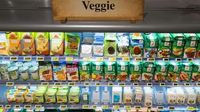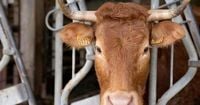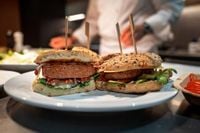On October 8, 2025, the European Parliament voted in favor of a controversial proposal to ban the use of meat-related terms such as "burger," "sausage," and "steak" on plant-based food products, igniting a fierce debate across the continent. The measure, which passed with a majority of 355 votes to 247, seeks to reserve these familiar labels exclusively for products made from the "edible parts of animals"—in other words, real meat. While the outcome is being hailed as a victory by livestock farmers and some politicians, critics argue it is a setback for consumer choice, sustainability, and the burgeoning plant-based food industry.
The proposal, led by French cereal farmer and right-wing lawmaker Celine Imart of the European People's Party (EPP), must still navigate several legislative hurdles before becoming law. It will first be clarified by a parliamentary committee, then sent to the European Commission— the EU's executive arm— and finally debated by the bloc's 27 member states. The process could take months, and the outcome is by no means certain, especially given the stark divisions the issue has exposed among lawmakers and the public alike.
Imart was quick to celebrate the parliamentary vote, posting on X (formerly Twitter), "A sausage means meat produced by our livestock farmers. Full stop. This is a vote for recognizing their work, and for transparency for consumers." She further argued, according to AFP, that "using these names only for real meat keeps labels honest, protects farmers, and preserves Europe's culinary traditions." Imart and her supporters see the measure as part of a broader effort to shore up the fortunes of Europe's embattled livestock sector, which has faced mounting pressure from environmental concerns, changing consumer preferences, and economic challenges.
But not everyone in the EPP was on board. German lawmaker Peter Liese dismissed the proposal as "nonsensical," writing on X that "we really have other concerns at the moment" and predicting that the measure might not survive the next rounds of negotiation. The internal split within the center-right group reflects broader disagreements across the political spectrum. Anna Cavazzini of Germany's Green Party was particularly scathing, telling Deutsche Welle, "While the world is burning, the EPP has nothing better to do this week than to involve us all in a debate about sausages and schnitzel." She urged the Council and the German federal government to "put an end to this nonsense, which confuses consumers, costs companies millions, and won't help farmers."
Consumer advocates, environmentalists, and major food retailers have also come out strongly against the ban. In Germany—Europe's largest market for plant-based meat alternatives—supermarket giants Aldi Süd and Lidl, fast food chain Burger King, and sausage producer Rügenwalder Mühle joined forces to oppose the measure. In a joint statement, they argued that consumers are perfectly capable of distinguishing between meat and plant-based alternatives, and that a ban would "force companies to use unfamiliar terms which significantly complicates market access and slows down innovation dynamics."
The pan-European consumer body BEUC echoed these concerns. Food policy officer Irina Popescu called the outcome "disappointing," noting, "Our data shows that almost 70 percent of European consumers understand these names as long as products are clearly labeled vegan or vegetarian." A 2020 study by the European Consumer Organization found that 80% of consumers did not see any problem with names such as "soy sausage" or "veggie schnitzel" when the products were clearly marked as plant-based. Astrid Goltz, a food expert at the German consumer protection organization Verbraucherzentrale, told Deutsche Welle, "Terms such as 'vegan schnitzel' don't cause confusion but help with orientation and promote clarity."
Supporters of the ban, however, insist that clarity is precisely what is at stake. Céline Imart argued in a parliamentary debate, "Now, we're not talking about banning vegetable or plant-based alternatives, of course not. But I think that terms should speak for themselves and should mean what they mean." For Imart and many livestock farmers, the use of meat-related terms for vegetarian products is misleading and undermines the value of traditional animal agriculture. The French meat industry has thrown its weight behind the proposal, as has German Chancellor Friedrich Merz, who declared, "A sausage is a sausage. Sausage is not vegan."
The debate is taking place against a backdrop of dramatic shifts in European eating habits. According to BEUC data, EU consumption of plant-based alternatives to meat has grown five-fold since 2011, fueled by concerns over animal welfare, the environmental impact of livestock farming, and health considerations. The plant-based product market in Germany alone could reach €65 billion ($75 billion) by 2045, potentially creating 250,000 new jobs, according to a recent study cited by DW.
Environmentalists and sustainability advocates warn that the ban could slow progress toward more sustainable food systems. Research by sustainability NGO Changing Markets Foundation points to aggressive lobbying by the meat industry, which has mounted massive campaigns to protect its market share. Chris Methmann, director of foodwatch Germany, described the proposal as "lobbying for the meat industry" under the guise of consumer protection.
Interestingly, the EU has already set precedents in food labeling. Traditional dairy terms such as "milk," "yogurt," and "cheese" are legally restricted to products derived from the "normal mammary secretion" of animals. This means that oat milk, for example, is typically sold as "oat drink" in European shops. Imart and her allies argue that it is only fair to apply the same logic to meat-related terms.
Yet, the legal landscape remains complicated. In 2024, the European Court of Justice ruled that EU member states cannot prohibit the use of terms traditionally linked to animal products for plant-based foods, at least not unilaterally. France had passed its own label ban in 2024, only to see it overturned the following January in line with the court's ruling. The current EU-wide proposal, therefore, faces significant legal and political hurdles, and its fate will ultimately be decided by the heads of state and governments of the EU's member countries.
For now, the future of "veggie burgers" and "plant-based sausages" in Europe hangs in the balance. As lawmakers, industry leaders, and consumers await the next steps in the legislative process, the debate continues to reflect deeper questions about tradition, innovation, and the future of food on the continent.
Whatever the outcome, the controversy has brought to the fore the passions and priorities shaping Europe's evolving food culture—reminding everyone that what we call our food is about much more than just what's on the label.






